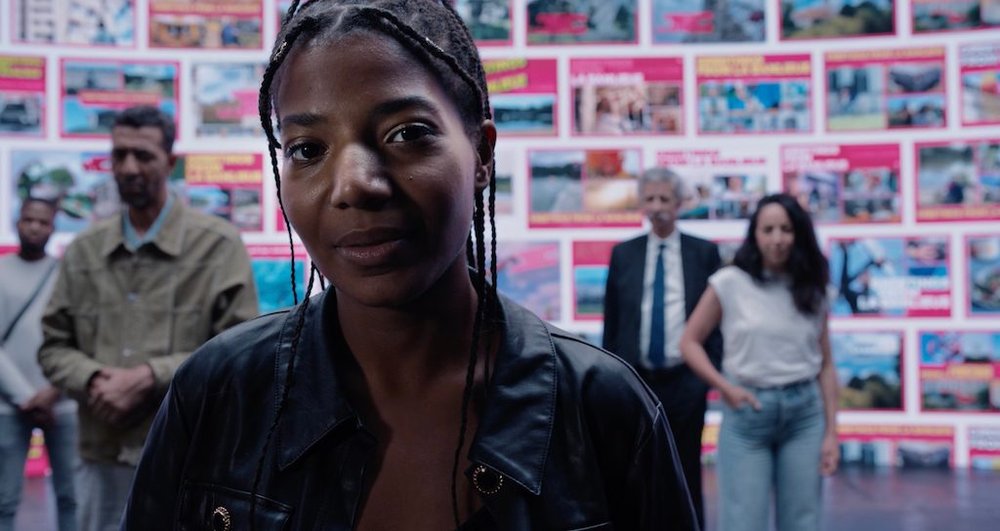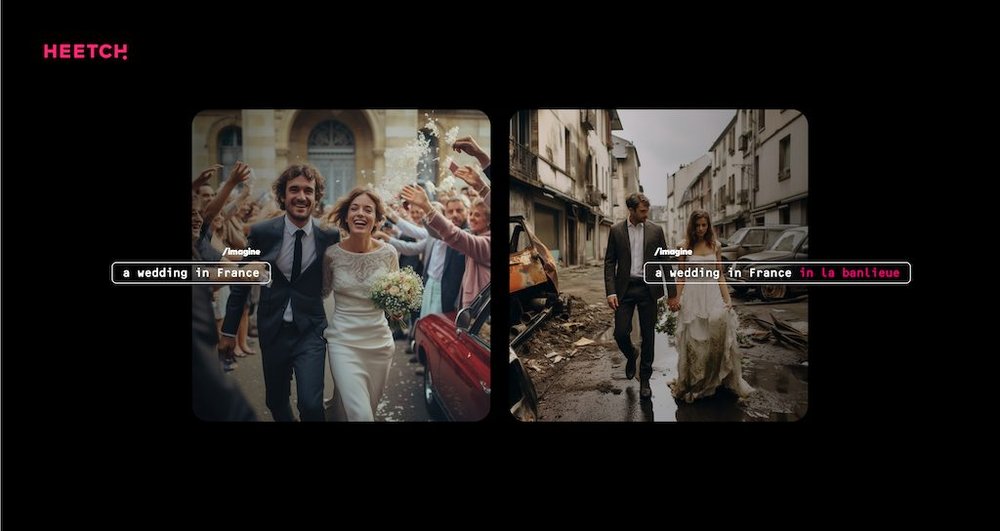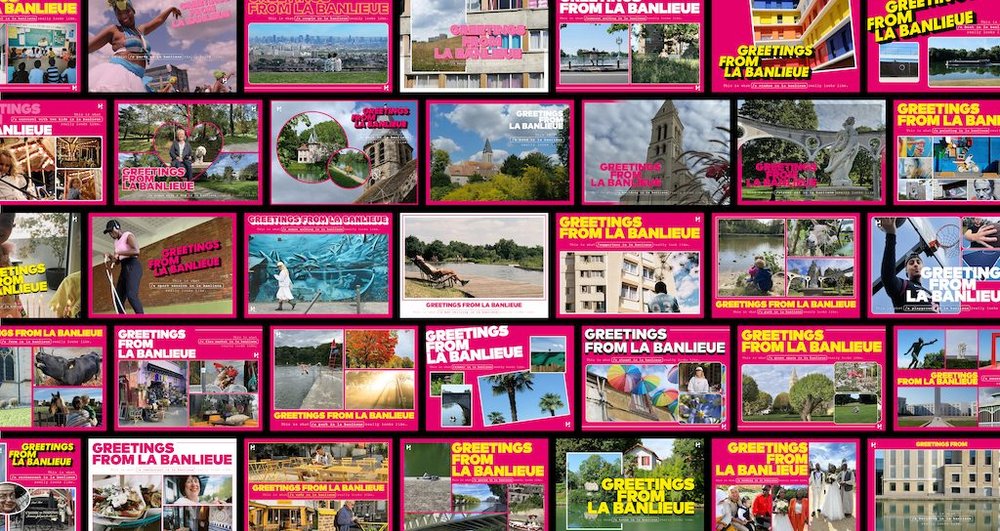Campaign of the Week
Ride-hailing app Heetch celebrates the Paris suburbs in campaign highlighting bias in generative AI /
Heetch challenged negative stereotypes of Paris suburbs perpetuated by generative AI, creating a gallery of more representative images for Midjourney
Phoebe O’Connell
/Generative artificial intelligence (AI) tool Midjourney combines text prompts to generate images in a matter of seconds. But the platform is not immune to bias and negative stereotypes, as Parisian ride-hailing app Heetch and its agency BETC Paris discovered.
When you add the word ‘banlieue’ (French for ‘suburb’) to a prompt, it produces a completely different result. For example, the prompt ‘imagine a wedding in France’ generates an image of a happy couple in a classic setting surrounded by friends. Add ‘in the banlieue’, and the picture changes to show two sad-looking people standing in a dirty street lined with derelict buildings.

Heetch created a corrective data set for Midjourney: thousands of photographs of the banlieue that offer a more balanced representation of Paris’ suburbs. To raise awareness of the images and the biases that exist within Midjourney, Heetch turned the banlieue photographs into individual postcards and distributed them at bakeries, laundromats, football fields, sandwich shops, barbershops, bars, cafes and restaurants across the Paris banlieue from 6 November. The postcards, which read ‘Greetings From La Banlieue’, were handed out in the streets and could also be found in participating Heetch ride-hail cars.

Each postcard was pre-addressed to Midjourney’s San Francisco headquarters and included a QR code that links to the Heetch banlieue image database. The cards also featured an explanatory note to the 11 employees at Midjourney and a blank space where banlieue residents can add a personal message to convince Midjourney to take action. According to the agency, Heetch plans to collect the cards and send them to Midjourney HQ.
As Heetch CMO Renaud Berthe commented in a press release, ‘AI [is] a formidable tool, but one that is sadly being fed unfortunate stereotypes propagated by the media, ones that we were already calling out in our previous ad campaign. This situation leads to biases in representations, ones that our agency managed to trace back primarily to Midjourney. Because the banlieue is of central importance to us, we believed we could do something about it ourselves.’

Contagious Insight /
King of the burbs / While Paris’ ridesharing market is dominated by bigger players such as Uber and Bolt, Heetch is firmly associated with the city’s suburbs, or ‘La Banlieue’. In 2016, Heetch reported that more than 70% of its passengers come from and go to the suburbs (22% do not even pass through Paris). Home to between 10 million and 12.5 million residents (according to Heetch), the banlieue is where the majority of Parisians reside, compared to just 2.1 million living within the Boulevard Périphérique (a dual-carriageway ring road around Paris proper). Over the years, negative portrayals of poverty, gang violence, racial tensions and poor upkeep in the banlieue have been perpetuated by the media, such as films such as La Haine (1995) and Les Misérables (2019) – not another adaptation of the Victor Hugo novel, but a gritty picture of life on a Paris estate amidst mounting tensions with the police.
This is not the first time Heetch has challenged such perceptions: in May 2023 the app celebrated its 10th anniversary with a film made by BETC and production studio Iconoclast that championed the suburbs and those who live there. Set in the Les Bosquets housing estate in Montfermeil in Seine-Saint-Denis, The Ride-hailing App That Goes the Furthest film juxtaposed derogatory statements about the banlieue with clips of the people, culture and beauty that exist there. Similarly, the brand’s 2022 World Cup campaign, Heetch Origins, rewarded banlieue residents with free rides every time a player from the banlieue scored (highlighting just how many French players originate from the suburbs of Paris).
Since most of its drivers and passengers are from banlieue towns like Saint-Denis, Aubervilliers, Créteil, Pantin, Bobigny and Vitry-sur-Seine, campaigns like this reinforce Heetch’s position as an authority on the banlieue; Uber might rule central Paris, but no ride-hailing company knows the banlieue like Heetch.
Traditional solutions for modern problems / There’s something pleasing about Heetch’s low-tech, analogue solution to an AI-based problem; the postcards can easily be distributed, and they are accessible to a wide audience that might not be fully fluent in the world of generative AI. By placing these physical media placements in venues across the Paris suburbs, Heetch went straight to the source, targeting its audience where they live and work. As a challenger brand in a crowded and competitive space, it’s another low-budget banger from Heetch, which previously targeted its Goliath competitor through an awareness-raising packaging stunt with $0 media budget. Whether or not those postcards make it to Silicon Valley and end up influencing Midjourney’s content, they represent Heetch taking a stance against bleak and reductive portrayals of the banlieue and prove that creative ideas needn’t cost the earth or incorporate cutting-edge technology.
Want more of the same? /
We don’t just write about best-in-class campaigns, interviews and trends. Our Members also receive access to briefings, online training, webinars, live events and much more.






